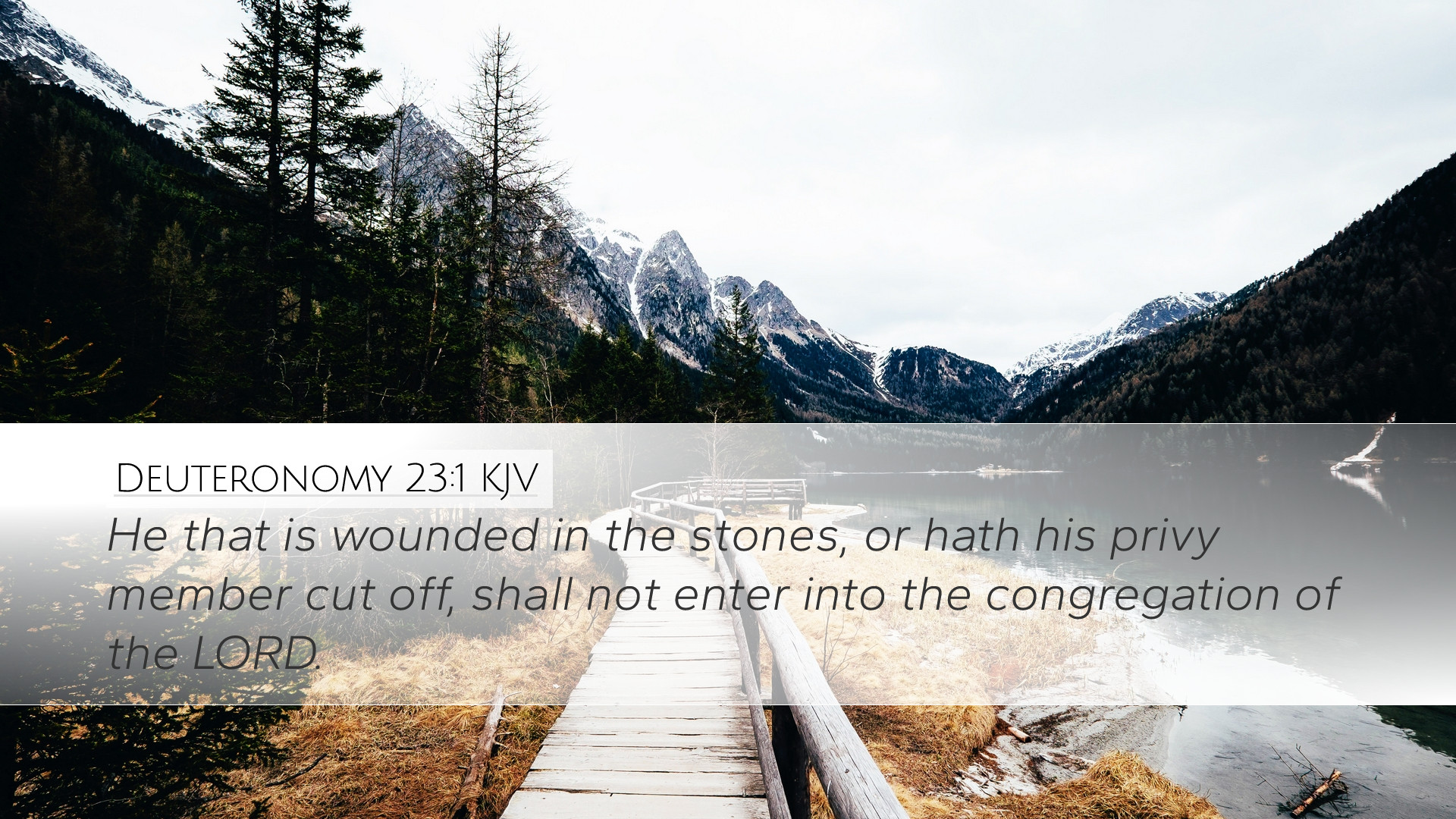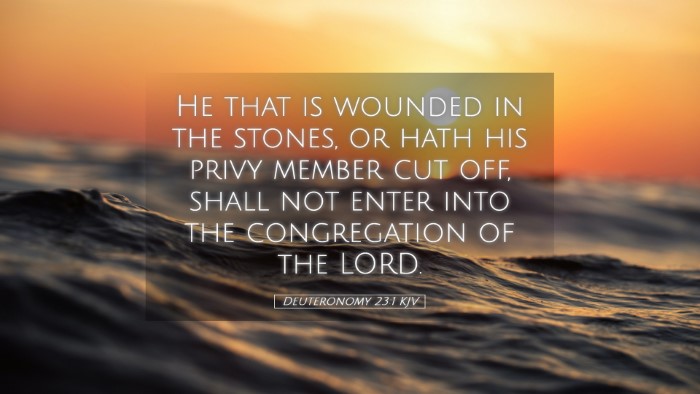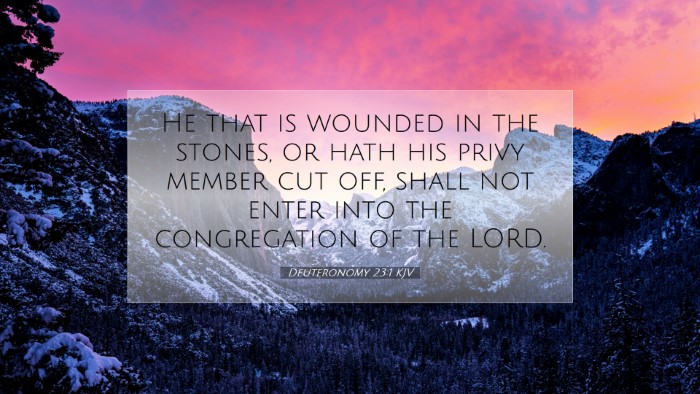Commentary on Deuteronomy 23:1
Deuteronomy 23:1 states: "No one who is emasculated or has his male organ cut off shall enter the assembly of the LORD." This verse, part of a larger section of regulations regarding those deemed unfit for assembly or worship, prompts considerable theological and ethical reflection.
Contextual Overview
In Deuteronomy, Moses presents the laws that are to govern Israelite community life. This book is written during the Israelites' journey in the wilderness, just before entering the Promised Land. The laws are not mere rules but reflect the holiness of God and Israel’s unique covenantal relationship with Him.
Theological Insights
This prohibition against those who are emasculated or mutilated entering the assembly of the Lord can be understood in various theological lights:
- Holiness of God: The law reflects God's holiness and the need for the people to approach Him with reverence. Matthew Henry notes that the regulations serve to maintain purity within the congregation, emphasizing that all who come before the LORD should reflect His holiness.
- Covenantal Identity: Adam Clarke points out that these laws underline the significance of maintaining the identity and integrity of the covenant people. They encapsulate who may worship and be part of God's chosen community, reinforcing communal boundaries.
- Symbolic Meanings: Albert Barnes suggests that the physical mutilation serves as a metaphor for spiritual defilement. The exclusion is not simply about physical condition but speaks to broader spiritual implications regarding wholeness before God.
Cultural Context
In ancient Near Eastern cultures, physical integrity often symbolized fitness for service and honor. Those who were emasculated, whether through injury or choice, were typically viewed as incapable of promoting family lines or fulfilling certain societal roles. Therefore, this prohibition would resonate deeply in the cultural context of the ancient Israelites.
Implications for Assembly and Leadership
This verse raises questions about leadership and community in worship settings:
- Inclusivity vs. Purity: The tension between inclusivity within the church community and the call for purity is a recurring theme in ecclesiology. While modern interpretations may lean towards a more compassionate understanding of inclusion, the historical context calls for a serious examination of the nature of assembly.
- Criteria for Leadership: The standards set in this verse can lead to discussions about the criteria for leadership and participation in ministry. Clarke's commentary encourages reflecting on what constitutes fitness for service in God's assembly.
Connections to New Testament Teachings
The New Testament often reinterprets or fulfills the Old Testament laws in light of Christ’s work. This leads to an exploration of how contemporary believers perceive qualifications for community and service:
- Redemption and Restoration: In Christ, all believers are made whole, regardless of their past. The radical inclusivity of the Gospel extends to those previously deemed unfit. Paul’s teachings, particularly in Galatians 3:28, emphasize that all are one in Christ.
- Spiritual Wholeness: Instead of physical qualifications, the New Covenant emphasizes spiritual condition and integrity of heart. The focus shifts from outward appearances to inward realities, as highlighted in 1 Samuel 16:7, where God looks at the heart.
Conclusion
Deuteronomy 23:1 invites rigorous examination of the concept of holiness, community standards, and the implications for leadership. The challenge for contemporary faith communities is to hold onto the call for holiness while embodying the grace and inclusivity modeled by Christ. Engaging with these ancient texts invites us to consider our own practices and attitudes towards those we deem unfit, reminding us of the transformative power of God’s grace and the call to inclusivity in the assembly of believers.
This commentary on Deuteronomy 23:1 serves as a crucial reminder for pastors, students, theologians, and scholars to grapple with the balance of holiness and grace in their ministry and community life.


